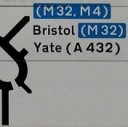Don’t just say it. Do it.
Neil Pickup |A little bit of double meaning in this week’s column. Firstly, a short update on last week’s musings, and then a few thoughts on the lifeblood of amateur societies the world over, the committee.
One of the best things about writing this blog is the fact that it’s genuinely useful as an outlet for what I’m thinking, and a base on which I can think and build upon. After that net session, I had no wish to put myself in the firing line again: but with a re-read, it was obvious that I must. If not for my own skills, for my credibility.
I can’t tell a nine-year-old to keep sticking at it if, at the first sign of danger, I run cowering into the corner. I don’t believe you can ever successfully persuade someone into willingly and consistently doing something that you can’t do regularly yourself. I know that, if I hadn’t have stood back on guard last weekend, the next time I did any work with a child finding back-foot/leg-stump play difficult, I would have had a nagging doubt at the back of my head – and nagging doubts manifest themselves as muddled thinking and bad explanations. There was no alternative.
Happily – both for my hopes of making any runs this summer, and my personal estimation of my ability to handle adversity, Sunday’s nets worked. A good 20-30 minutes of throwdowns aimed to spear up into my gloves, throat and helmet had the desired effect: (i) getting myself into line, and (ii) getting my head round a new slant on the age-old conundrum of backing-away.
In short, what I figured out – with the help of the guy chucking the ball at my face – was that my weight’s been over my backside for far too long. It’s all very well having a trigger movement back-and-across, but if it’s just your feet that move to middle-and-off, and your head remains rooted on leg, then your centre of gravity is only barely within your base. The slightest lean backwards, understandable as a short ball spears into your ribcage, leads to your centre of gravity being outside your base – forcing the feet to move to leg to compensate.
With a conscious effort to make sure my weight was initially over my front leg and front foot, the extra time I felt I had to play the throwdowns was incredible. The balls that I had previously fended away, porpoise-like, barely registered as any different to a delivery on off. Not only that, but I then hit three consecutive leg glances off the middle of the bat. As a rule, a full ball on my leg stump or outside it will either hit pad, or carry through to the keeper: this was new. And it was good. Now it’s down to me to keep it like that*.
*This sentence originally read “Now let’s see if it lasts”. However, I decided that was riddled with self-doubt and potential excuses, and as I’m not letting any of the kids get away with that, I’m not allowed either. You can hold me to that, readers.
There is no point in simply having the words: the actions that follow them through are a hundred fold more important – and this brings me neatly on to the second point of this week’s entry. Committees – or the managerial role in general. No grass roots sport would happen in this country without thousands upon thousands of hours’ work from volunteers: yet it always comes down to the same faces.
I’ve been at Bicester & North Oxford for less than three weeks. I’m now the Club’s Welfare Officer. Since 2002, at various times, I have been: (a) manager of two district representative age group sides, (b) manager of five club age group sides, (c) effective assistant manager of five more club age group sides, (d) webmaster for three different clubs, (e) communications officer, (f) 4th XI captain, fixture secretary and bloke-in-charge-of-teas. I have also filled in as umpire, scorer, unlocker, locker-upper, cover-repairer, chauffeur, first-aider, vice-captain, stand-in keeper and league fixture secretary.
I know am not alone in possessing a list of duties long enough to make anyone scroll down into the next paragraph. I also know that my list is nowhere near as long or as detailed as many others’. I’m not asking for plaudits: I’m asking why it is always the same people, taking on the jobs because they must be done – and no one else will do them. Why, at the end of a football match watched by 4,000, can only 30 spare fifteen minutes to help clean the place up? Why, when you ask who’s willing to take twenty overs with scorebook and pencil, is there only the same single volunteer?
One task. One team. One website. One stint for your club. At Exeter we had a saying – JFDI. Just Do It. Figure out the rest yourself.




Leave a comment